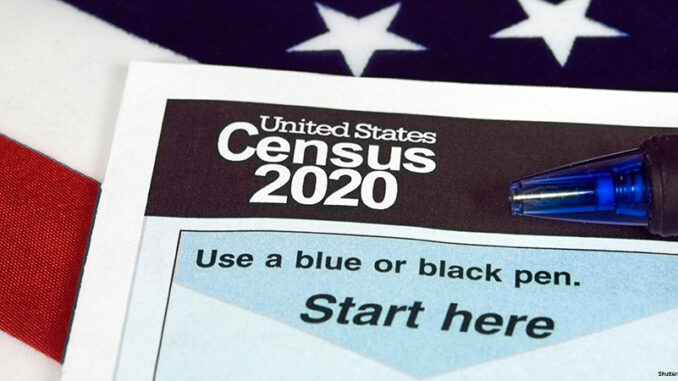
Baltimore Museum Shifts Focus to Female Artists
Quick: Off the top of your head, name five visual artists.
Now, be honest: How many of them were men? How many of them were white? It’s likely that most, or even all, of them were. That’s because the American and European art canon has traditionally been dominated almost exclusively by white, male artists. But the Baltimore Museum of Art has decided to do what it can to change this. Next year, the museum will purchase only works of art by women and female-identifying artists. This plan is part of a larger initiative at the museum called Vision 2020, which is a year-long series of 22 exhibits featuring female-identifying artists.
Currently, there are nearly 3,800 works of art by 1,050 women in the museum’s collection. That sounds like a lot until one considers that the museum has 95,000 pieces–meaning that art by women makes up only 4 percent of its total collection. This imbalance is much broader than just one museum. A 2019 study looked at eighteen U.S. art museums and found that 87 percent of the artists in their collections were men, and 85 percent were white. Even worse, 10 percent of them had no female-identifying artists in their collection at all.
Vision 2020 will feature artists such as Georgia O’Keeffe, Maria Martinez, and Elizabeth Catlett. It will also host special exhibits, such as one devoted to the artistic contributions of twentieth-century African women, and another focused on beaded work created by nineteenth-century Lakota women.
What Do You Think? In your opinion, why is it important for art museums to promote works by women and people of color? Do you think the imbalance described in this article is specific to the art world, or does it affect other creative fields–such as music and literature–as well?
Nebraska Takes Sides in Census Battle
You may have already heard about the upcoming 2020 Census. According to the Constitution, the federal government must conduct a complete headcount of its residents every ten years. The information gathered by the Census is critical: the federal government uses it to make decisions about everything from funding for programs and services to determining voting districts. Yet some groups, particularly undocumented immigrants, are reluctant to share their personal information with the U.S. Census Bureau out of fear of what might happen to them as a result.
The Trump administration tried to add a question about citizenship to the 2020 Census, but earlier this year, the federal courts overturned it. So in July, Trump passed an executive order requiring state and local agencies to provide citizenship data to the federal government. Nebraska has become the first state to comply with that order. As of November 20, Nebraska’s Department of Motor Vehicles has agreed to share all of its state driver’s license information with the U.S. Census Bureau.
Those in favor of the agreement say that the information is critical for determining accurate voting districts. Plus, Nebraska only allows legal U.S. residents to obtain driver’s licenses, so they argue that sharing this information won’t pose a threat to anyone. But opponent organizations are already suing the Trump administration, saying that the requirement to provide citizenship data will discriminate against Latinos, noncitizens, and other immigrants and keep them from being counted fairly. And if they’re not accurately counted, then when voting lines are re-drawn after the Census is complete, it could prevent these groups from receiving fair representation.
Dig Deeper What part of the U.S. Constitution requires the government to perform a Census every ten years? According to the Constitution, should the Census contain questions about citizenship?
U.S. Remains Divided About Impeachment

Have you been following the Trump impeachment inquiry? If so, has any of the information that’s been revealed changed your mind about whether or not Trump should be impeached? If you say no, you’re not alone. A recent poll conducted by NPR and PBS revealed that the majority of Americans haven’t changed their minds about whether or not the president should be impeached since the inquiry began. Not only that, but two-thirds of voters say that nothing they hear during the testimony is likely to change their minds, either. And Americans remain split about 50-50 on whether or not they think the president should be impeached, which is basically the same as it was before the House’s inquiry began.
Is this deadlock a good or bad thing for the Democrats, heading into the 2020 presidential election year? It’s hard to say. On one hand, half of the voters remain firm that the president shouldn’t be impeached for his alleged requests toward Ukraine. And, as stated before, most people who are against impeachment aren’t likely to change their minds. But on the other hand, the Democrats postponed beginning the impeachment inquiry for a long time, fearing possible backlash–and that backlash never came.
The takeaway from all of this? Unfortunately, it seems to be that our nation is as deeply divided as ever.
What Do You Think? In your opinion, why are people are so reluctant to change their position on impeachment? What information–if any–could be revealed that would make you change your mind one way or the other?
Oil Prices Continue to Fall
Most of us don’t think about oil prices beyond complaining about what we are paying at the pump. And right now, U.S. oil prices are falling–but that isn’t necessarily a good thing.
About two-thirds of U.S. oil production comes from shale. And a lot of this production has been spearheaded by small, independent companies willing to take risks and drill widely, funded by investors hoping to hit it big. (Think 1840s-era prospectors moving west in search of gold.) But this isn’t always the most successful way to do business, and so many of these small companies are now finding themselves deeply in debt. To make matters worse, the global demand for oil is shrinking, causing prices to fall even further.
But if you’re not an oil mogul, why should you care? Because what all of this means is that smaller, struggling oil production companies might be forced to close up shop, which means that less oil will be produced in the future. Oil and gas represent about 7.6 percent of the U.S. GDP, so the collapse of a large portion of a major industry such as oil will lead to unemployment and have negative effects on the economy overall. Other businesses, predicting an economic downturn, could also decide to dial back their hiring and spending. On a wide scale, this could ultimately lead to a recession.
